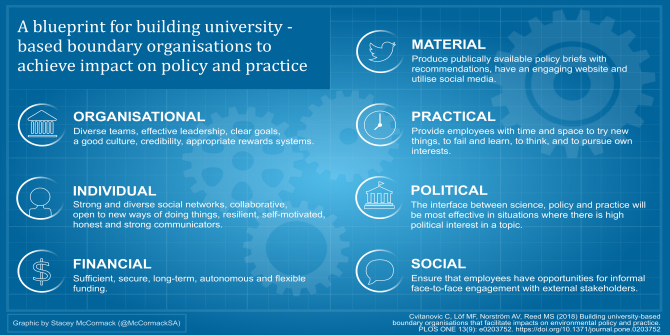 Volha Piotukh and Simon Lightfoot look at the links between research and teaching in Politics and International Relations and find they are not as visible as one would expect, in part due to them being insufficiently developed institutionally. While departments/schools of the Russell Group universities explicitly discussed the research-teaching nexus, very few of the individual departments demonstrated a variety of practices. Furthermore, nearly 23% of these departments/schools did not offer any evidence of the links between research and teaching, which, to some extent at least, signals a lack of importance and value afforded to such links.
Volha Piotukh and Simon Lightfoot look at the links between research and teaching in Politics and International Relations and find they are not as visible as one would expect, in part due to them being insufficiently developed institutionally. While departments/schools of the Russell Group universities explicitly discussed the research-teaching nexus, very few of the individual departments demonstrated a variety of practices. Furthermore, nearly 23% of these departments/schools did not offer any evidence of the links between research and teaching, which, to some extent at least, signals a lack of importance and value afforded to such links.
A recent Political Studies Association (PSA) blog proudly announced that “Politics research is ‘world leading’ and has an ‘outstanding’ impact on policy-making”. Given the work that went in to Research Excellence Framework (REF) this is clearly something we as a discipline should be rightly proud of. However, reading that blog once again made us think ‘do our students get the benefit of this research?’. We stress the research/teaching links in Politics and International Relations (PIR) at a rhetorical level across the discipline, but we feel there has been a lack of analysis of the specific ways in which such links are perceived and enacted in practice. In a recent article we discuss the findings of our research into these issues.
The research in question aimed to discover how the research-teaching nexus was understood by a group of colleagues with an established interest in the area. We found that, even among this small group, there were very different views regarding the relationship between research and teaching. For instance, responses to the question ‘How do you understand the term “research-led” teaching?’ were surprisingly varied and ranged from a rather traditional (narrow) understanding of the link as ‘teaching in the area that relates to [one’s] research agenda’ or a more specific view of it as teaching informed (driven/directed) by research (majority of answers), to a broader and more balanced approach, whereby the two were perceived as integrated.
When asked to characterise their own practice (see below), most respondents agreed that their courses supported the development of students’ research and transferable skills, with only a fraction of respondents saying that they collaborated with their undergraduate (UG) students in conducting research. This demonstrates the challenges presented by ‘higher’ levels of integration of research and teaching.
Figure 1: How academic staff within the disciplines of politics and international relations view research–teaching links
 Source: Small N-study – Lightfoot and Volha Piotukh, Politics Volume 35, Issue 1, pages 99–110, February 2015
Source: Small N-study – Lightfoot and Volha Piotukh, Politics Volume 35, Issue 1, pages 99–110, February 2015
The most common way that students experience the research-teaching nexus, according to our paper, was through the final year undergraduate dissertation. The responses also demonstrated a lack of awareness of best practice in PIR departments other than respondents’ own, with one third of respondents struggling to name any examples. For us, this suggests that more needs to be done across the discipline to showcase best practice and disseminate information that could be of potential interest/value to colleagues.
The small-N survey and interviews were complemented by an analysis of 90 Politics/IR departments’/schools’ websites in order to get a sense of whether and how these links were presented to the public, which would include future students. The analysis revealed that, while departments/schools of the Russell Group universities as a whole explicitly discussed the research-teaching nexus, very few of the individual departments demonstrated a variety of practices. Furthermore, nearly 23% of these departments/schools did not offer any evidence of the links between research and teaching, which, to some extent at least, signals a lack of importance and value afforded to such links, something that is also likely to have an impact on how future students will perceive the research/teaching nexus.
We call for the need for a fuller understanding and more appreciation of the links between research and teaching across the discipline of PIR. For us, such understanding and appreciation are important for a number of reasons, not least because of the productive synergies between the two. Thus, the positive influence of research on teaching can be seen in the novelty and originality of the material being taught by research active academics and in their closeness to the research experience and research process as a whole. As the relationship is not one-directional, the positive influence of teaching on research also comes in a variety of ways, for instance, when research is shared with, and challenged by students, or when new research ideas are developed through teaching.
Furthermore, understanding and an appreciation of the links between research and teaching are important if students are to fully benefit from ‘higher’ levels of integration between research and teaching by acquiring necessary skills (the so-called ‘research literacy’) and engaging in research as early on in their studies as possible, thus becoming an integral part of the research community. Indeed, research literacy improves students’ employability, it helps them better understand the university environment and appreciate the contribution academics and they themselves make to the development of scholarship, as well as further utilising the research that informs their learning.
We also identify and discuss multiple examples of the good practice of relevance, ranging from the incorporation of theoretical and methodological discussions into the module delivery, to providing ‘hands-on’ research experience during placements with an embedded research component, and from using problem-based learning when delivering teaching directly related to the academic’s current research, to encouraging UG students to present at conferences. The PSA recently sponsored the first PIR UG research conference at De Montfort University, which provides an excellent example of the type of event that exposes students to life as a researcher. The event brought together 16 students from nine UK universities. However, we feel that more could be done at a regular module level, especially in relation to assessment to engage students in research. Examples include submitting drafts and then replying to the review in the final piece or involving practitioners in evaluating the submitted work.
There are wider issues such as the increased use of teaching only contracts and the linked REF driver that pulls research active academic staff away from teaching, but we conclude that links between research and teaching in PIR are not as visible as one would expect, in part due to them being insufficiently developed. Along with further exploration of perceptions and attitudes regarding the research/teaching nexus of both academic staff and students, we advocate the production of more case studies from the discipline with a view to ensuring that the significance and variety of research–teaching links … is more fully appreciated and, ultimately, that the research/teaching nexus remains viable in the future.
A similar version of this post appeared on the PSA blog and is reposted with the authors’ permission.
Note: This article gives the views of the author, and not the position of the Impact of Social Science blog, nor of the London School of Economics. Please review our Comments Policy if you have any concerns on posting a comment below.
Volha Piotukh is a Postdoctoral Research Associate at Durham University.
Simon Lightfoot is Senior Lecturer in European Politics at Leeds University.








1 Comments